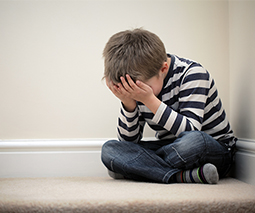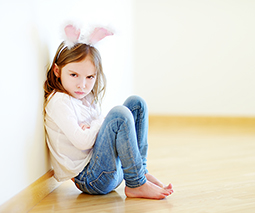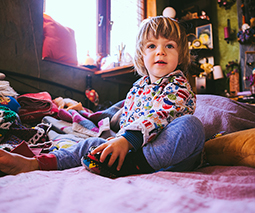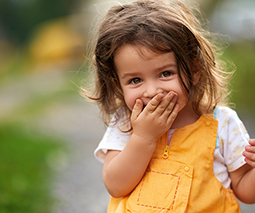“No, mummy!” How not to lose your mind if your child is a defiant little rascal

If you’re the parent of a child who has decided that you’re not the boss of them, lean a little closer to the screen.
Dr Laura Jana is a paediatrician and the author of The Toddler Brain. She explains why toddlers can be so defiant and what’s behind all those stubborn ‘NO!’s and cross foot-stamps. AND what parents can do to encourage children to be more cooperative.
Listen to Dr Laura Jana on Feed Play Love:
Forget the labels
“We all think of the terrible twos and tantrums,” Dr Laura says, but that doesn’t get to the heart of what’s really going on.
When little people are dealing with big feelings, they need understanding rather than demonising or dismissive labels. #Whoops #SorryDefiantLittleRascal
“We want to help young children learn to manage their emotions,” Laura explains. “Figure out how to be more socially appropriate, how to navigate the world.”
“That does take a certain degree of taming,” she admits. “But unless you understand the other side of it, you run the risk of taming some things out of children that you actually want them to have as they get older – like being assertive and being independent.”
Keep expectations age-appropriate
So how should parents tackle this gentle taming? Laura says it all starts with nurturing self-awareness and impulse control in little ones.
“They’ve got really strong emotions,” she continues. “And what we have to remember is learning to control them is a skill. So the first step is being aware of them, so self-awareness and self-control.”
“What we know about young children is that these skills – they’re called executive function skills – really don’t kick in until about the ages of three to five.”
Dr Laura says this is why two-year-olds especially struggle with big feelings.
Pick your battles
To avoid constant conflict, Laura says parents and carers should pick their battles.
“They need to know when you mean it,” she explains. “Decide what you think is really important and then you want to be consistent about it.”
And what about that two-year-old that is defiant all the gosh-darned time?
“When you have a very stubborn, assertive, independent, ‘I’m going to do it myself’ kind of child when they’re two … it can be very frustrating.”
But Laura says a perspective shift might help parents feel more hopeful and less overwhelmed.
“It’s what you want when they’re 22,” Laura points out, noting that they’re laying the foundations for excellent character traits later on in life.
“‘I’m going to get this done. I’m going to be assertive. I want to do it myself. I don’t need you to do it for me.’ That’s great. As a parent of now a 22-year-old, a 21-year-old and a 19-year-old, you want your children to grow up being independent. It’s just all the more challenging when they’re two.”
“It’s a two-year-old’s job”
Laura also notes that two-year-olds who are behaving this way are doing exactly what a child this age is built to do!
“It’s a two-year-old’s job to test your limits – ‘I’m going to do this and see if I can get away with it’. It’s your job to set some limits so when they push back and say, ‘I don’t want to be in a car seat’ you say, ‘I understand that you don’t, but you need to be’. End of discussion.”
“Think of it as a learning experience. You’re teaching them you’re going to be consistent about it, but at the same time understand it is normal for them to push back on you, so that it’s not something that you need to get angry about.”
“You can be frustrated. Try to keep that to yourself and say, ‘This is normal. And it’s my job to teach them and help them learn not to do the things that they’re not supposed to do.’”
Find more great stories and expert advice in the Feed Play Love podcast. Available in Apple Podcasts, Google Podcasts, Spotify or wherever you listen.









